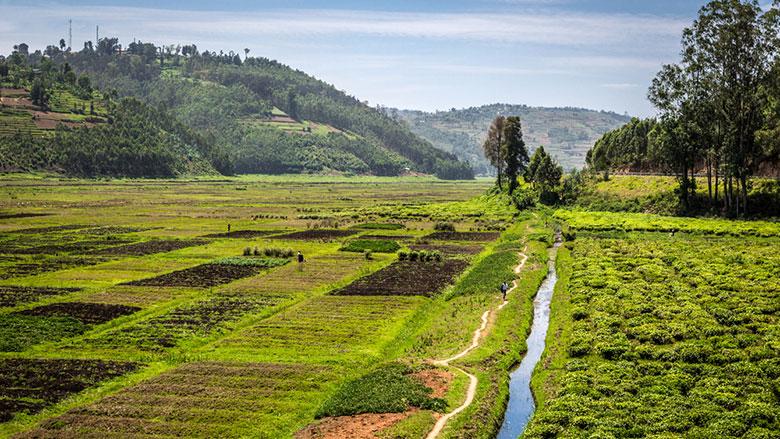
#other countries : Facing the food crisis, some African countries are looking for sustainable solutions. This is the case of Ghana, which is considering various measures to boost its agriculture, including the production of organic fertilizers and a commitment by banks to allocate 20% of its loans to agriculture.
As such, and in order to mitigate the effects of the Ukrainian crisis on their economies, some African countries seem determined this time to invest in the food-producing agricultural sector. Such is the case of Ghana, which has been facing rapid inflation of more than 23% since the beginning of the year, mainly due to rising food prices. The country’s authorities are now trying to find permanent solutions to deal with food shortages and inflation.
>>> Read also: Affected by the Russian-Ukrainian crisis, Africa will only owe its rescue to African solutions
Among the recommended measures, there are two that should have a positive impact on the agricultural sector. First, in the face of weak agricultural financing by banks, the authorities are considering coercive measures to force them to allocate 20% of their loans to the economy in the agricultural sector. To achieve this, according to Ghana’s Minister of Food and Agriculture, Osso Afriye Akoto, the government intends to draft a bill.
The choice of this rate is not accidental, because it corresponds to the added value of the sector to the Ghanaian economy. In fact, agriculture accounts for 20% of Ghana’s GDP. However, the sector currently receives only 5% of the loans granted by the banking sector. These credits are generally directed towards agriculture destined for export, particularly cocoa, palm oil and rubber which account for 7% of the cultivated land, particularly large plantations. Small farmers, who run small family farms, are generally neglected by the banking sector.
>>> Read also: Crisis in Ukraine, drought and inflation: an explosive cocktail for the inevitable food crisis in Africa
With a commitment to increase the share of their loans to agriculture to 20%, the authorities want to push the banking sector to become more involved in financing the country’s economy. This will allow farmers to be able to mechanize their cultivation and purchase fertilizers to increase the productivity of their crops.
But the task does not seem easy. Akuto points out that some countries have adopted this powerful method to boost their agriculture. This is the case of India, which has asked its banks to allocate a percentage of its total loans to farmers to contribute to the green revolution in the country. The results were satisfactory. Despite having more than 1.4 billion consumers, India is not experiencing a food crisis. Until the country became an exporter of wheat.
>>> Read also: Niger: Products and Innovations at the Agriculture, Hydraulics, Environment and Livestock Fair
In addition to the credit component, Ghanaian authorities have also focused on fertilizers. Faced with the rising prices of these products around the world, the authorities decided to encourage the production of organic fertilizers as an alternative. It must be said that the sharp rise in fertilizer prices is so strong that many farmers can no longer get supplies, at risk of greatly increasing their production costs. Indeed, before the crisis, Ghana relied on fertilizers imported from Russia for 40% of its needs. To produce these organic fertilizers, the government relies on the participation of national actors. Among them is Integrated Recycling and Compost Plant Ltd (IRECoP), a company that has developed even at the level of the West African sub-region.
>>> Read also: Rwanda launches $350 million agricultural support fund
However, recognizing that Ghana alone cannot find a solution to this dependence on imported fertilizers, the authorities of the country are urging the governments of ECOWAS countries to consider subsidizing organic fertilizers to encourage and encourage their production. Farmers in the region to increase the production of organic agricultural products.

“Hipster-friendly coffee fanatic. Subtly charming bacon advocate. Friend of animals everywhere.”





More Stories
F-16 crashes in Ukraine – pilot dies due to his own error
Namibia plans to kill more than 700 wild animals to feed starving population
Endurance test for EU-Turkey relations and Ankara with Greece and Cyprus